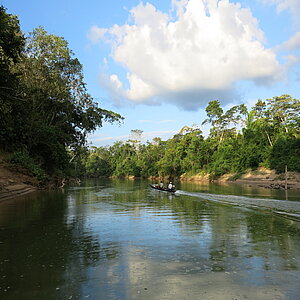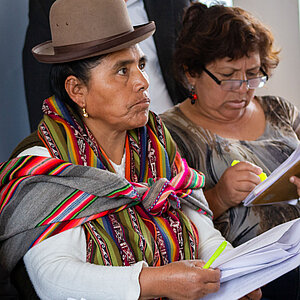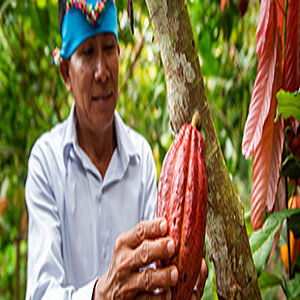Gender and interculturality in the context of climate change

The IKI interface project in Peru organised the first thematic meeting on gender and interculturality.
According to the Defensoría del Pueblo (Public Defender’s Office) of Peru, gender and intercultural perspectives are crosscutting approaches that complement each other to the extent that they seek to protect the individual and collective rights of people. In this line, the incorporation of these approaches in climate action and biodiversity conservation should help people in situations of greater social vulnerability to improve their quality of life. These vulnerable groups include women, children, teenagers, the elderly, people deprived of liberty, people with disabilities, indigenous people, Afro-descendants, migrants and LGBTIQ+ (lesbian, gay, bisexual, transsexual, intersex, queer) people.
The International Climate Initiative (IKI) recognises that environmental, biodiversity and climate policies are not gender-neutral. In this regard, as of 2021, the IKI has already developed a gender strategy, which was presented at COP26. Thus, future IKI projects will focus more intensely on achieving a just society according to this approach.
The Peruvian government has also identified that the variables of gender, age, ethnicity and culture accentuate the population’s situation of vulnerability to the effects and impacts of climate change. For this reason, gender and intercultural approaches are transversally included in the Framework Law on Climate Change, and the country has developed a National Policy for the Mainstreaming of the Intercultural Approach and a Gender and Climate Change Action Plan.
IKI meeting on gender and interculturality
On 16 September, the first thematic meeting on gender and interculturality in the context of climate change was held. This face-to-face event, organised by the “NDC Peru” project in its role as the IKI Peru interface, aimed to promote the exchange of information and experiences that lead projects to establish synergies around the issues of gender and interculturality.
Milagros Sandoval, director of the General Directorate of Climate Change and Desertification (DGCCD) of the Peruvian Ministry of Environment (MINAM) gave the welcoming remarks. She had previously highlighted the importance of these spaces for promoting synergies. She pointed out in her remarks that her department is working to include gender and intercultural issues, which should not be considered as an isolated or additional effort in development processes, but rather as a crosscutting approach.
IKI gender strategy
Birte Derrix, policy officer in the IKI division of the Federal Ministry for Economic Affairs and Climate Action (BMWK), presented the IKI gender strategy via streaming from Germany. In her presentation, she pointed out that continuous gender mainstreaming is required to contribute to the transformative process. In addition, she noted that gender mainstreaming is a strategic approach that works systematically to address the diverse needs, circumstances and interests of all genders.
The IKI gender strategy is following an intersectional approach, which takes into account various types of discrimination and their interactions in its analysis of gender relations. In this context, gender guidelines and internal capacity building will be developed in the coming months.
Incorporation of crosscutting approaches in the integrated management of climate change in Peru
Jessica Huertas, gender and intercultural specialist at the DGCCD, gave a presentation that served to explain the importance of incorporating gender, intercultural and intergenerational crosscutting approaches in climate policies. According to her, "The most important thing about this differentiated impact on gender and intercultural issues is that it is never binary”.
She also emphasised that there are groups of women that are more vulnerable than others: Afro-Peruvian women, indigenous women, women in rural areas, women with little education, trans women, elderly women and girls. She explained that these subgroups will have greater exposure to risk, greater vulnerability, less adaptive capacity and less access to employment in the context of climate change.
Jessica Huertas closed her presentation saying that we all must remember that “Gender does not equal women, intercultural does not equal indigenous peoples and intergenerational does not equal youth” as these concepts go beyond individual groups.
Indigenous women leaders and forest conservation
The IKI project “Promoting indigenous forest conservation and sustainable development through the implementation of Technical Community Forest Management Units in the Ucayali region” presented its experience with the Indigenous Women's Programme (PMI, for its Spanish initials).
Iris Olivera, coordinator of climate change and forests in DAR, presented the experience of indigenous women leaders and community management. For this, she invited Judith Nunta, responsible for the PMI, and Mirian Sanchez, monitor and trainer of the Community Forestry Oversight, both from the Regional Organisation of AIDESEP Ucayali (ORAU), who mentioned that this programme has ten professional indigenous women, a forestry overseer, and community control and monitoring committees.
They also highlighted that with the support of the programme, women can now be monitors, trainers and forest firefighters, as well as assume other roles at the service of their community; that 39 women have been recognised as forest custodians; and that capacities were strengthened in the use of technologies for forest control and monitoring in 52 native communities where nearly 30% of the participants were women.
Participation of indigenous and native peoples in the implementation of the NDCs
Vivian Chávez presented a study called “List of climate change adaptation and mitigation measures that identify the participation of indigenous and native peoples in the implementation of the Nationally Determined Contributions (NDCs)” developed as part of the IKI’s “NDC Peru: support to the implementation of the National Climate Change Strategy” project. This study identified that indigenous and native peoples develop actions in 39 of the 154 adaptation and mitigation measures included in the NDCs.
Next steps for the IKI in Peru
Georg Schmid, head of the IKI interface project in Peru, said that the project will continue to organise thematic meetings and workshops as they contribute to strengthening bilateral dialogues between IKI Peru projects.
The link has been copied to the clipboard
Contact
IKI Office
Zukunft – Umwelt – Gesellschaft (ZUG) gGmbH
Stresemannstraße 69-71
10963 Berlin
IKI interface projects
IKI interface projects are located in IKI priority countries and maintain permanent project offices in the country’s capital city. Besides being commissioned with their own country-specific projects, these interface projects are also tasked with maintaining close contact to national environment and climate ministries as well as networking with other relevant ministries in the field of climate and biodiversity policy.






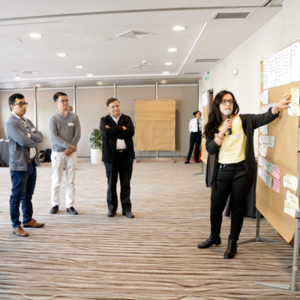


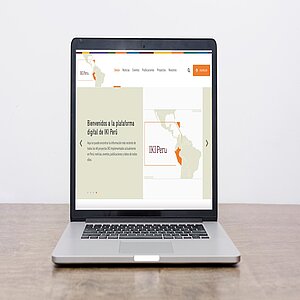
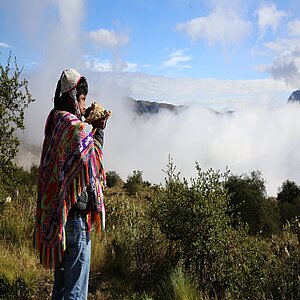
![[Translate to English:] Amazonian River](/legacy/_processed_/6/c/csm_20210127_Amazonian_river_GIZ__Thomas_Miller_69f7b606b0.jpg)
